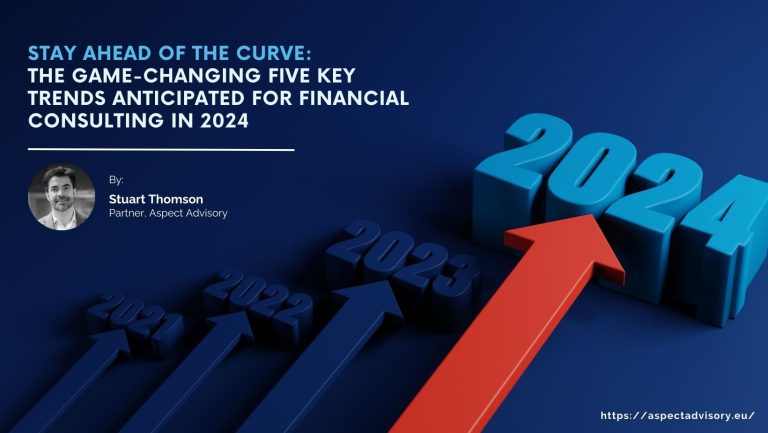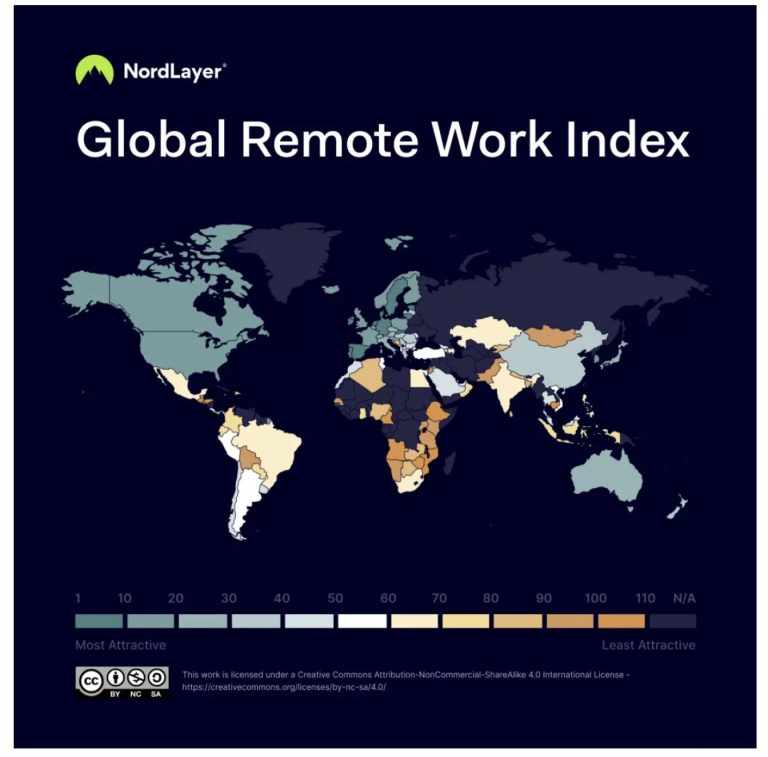
Introduction
This article offers a perceptive overview of 5 key trends that are poised to drive and reshape the financial sector this year and beyond. These valuable insights will assist businesses in navigating the evolving landscape and making strategic decisions to achieve success. If you aspire to stay ahead of the curve and prosper in the constantly evolving world of finance, we urge you to continue reading.
We are now well into 2024, and enterprises in various industries are grappling with intricate market dynamics that are evolving at an unprecedented pace. This situation brings forth a substantial prospect for expansion to consulting firms and individuals.
In the year 2023, it became apparent that the progress of sophisticated technologies such as data analytics and generative artificial intelligence (genAI) has not diminished the need for consulting services. Quite the contrary, in fact. Organisations across all sectors are increasingly relying on consultants to provide them with expert advice on how to effectively incorporate these new tools into their business strategies.
Simultaneously, the ongoing tension between urgency and inaction will persistently impact sustainability. This would affect a diverse array of stakeholders encompassing companies, investors, employees, regulators, communities, and policymakers, all confronted with the challenges of ESG risks and climate change hazards, thereby presenting novel prospects for consulting firms to take the lead in facilitating companies’ metamorphosis and advancement.
These upcoming trends will undoubtedly challenge the banking industry as we know it. Higher interest rates, reduced money supply, more assertive regulations, climate change, and geopolitical tensions are just a few elements that will redefine the foundational architecture of the banking and capital markets industry.
Trend # 1: AI & Generative AI
It is anticipated that half of the prominent European enterprises will take the initiative to invest in ensuring compliance with artificial intelligence (AI). The European Union (EU) is in the final stages of finalizing the AI Act, which is expected to come into effect in 2025. Due to the intricate nature of the AI Act, its far-reaching implications, and the substantial financial risks involved, companies cannot afford to be ill-prepared.
European firms are poised to initiate their efforts towards AI compliance in 2024, with a forecasted 50% of large European companies proactively investing in AI compliance within the next twelve months, as predicted by Forrester. These organizations must undertake measures such as obtaining new technology and talent, as well as securing the necessary support from third-party entities. It is imperative for companies to define their AI compliance strategy promptly and commence its implementation without delay. 1
One of the most significant advancements is the rapid growth of generative AI (GenAI) investments, particularly in European countries. With an estimated increase of 115% in funding, reaching a staggering €2.57 billion ($2.8 billion), GenAI is set to revolutionize multiple sectors. From defense to education, technology to automotive, machinery, pharmaceuticals, and healthcare, the impact of GenAI will be felt far and wide. 2
According to a recent McKinsey report, GenAI could drive significant labour productivity growth of between 0.1% and 0.6% annually. Generative AI is positioned to revolutionize various functions, including sales and marketing, customer operations, and software development, thereby enhancing performance. This transformative technology has the potential to unlock trillions of dollars in value across sectors ranging from banking to life sciences.
Trend # 2: Sustainability
2023 was recorded as the hottest year on record symbolising both a warning and a call to action.
The European Banking Authority (EBA) has formulated new guidelines regarding the evaluation, quantification, administration, and oversight of risks related to environmental, social, and governance (ESG) factors, as well as the European Union’s transition towards achieving a “climate-neutral” economy.
The expectation for these risks is based on an increasing series of actions implemented during the past year, with the aim of transitioning EU institutions to achieve net-zero emissions by 2025, in alignment with the objectives outlined in the EU Climate Law.
The landscape of sustainability is undergoing rapid changes, propelled by an unprecedented convergence of global environmental and political crises, coupled with shifts in regulations.
The COP28 conference marked a crucial turning point in our journey towards a sustainable future, signaling the initiation of the decline of the fossil fuel era. For the first time in recorded history, the world has achieved a significant milestone by unanimously committing to a comprehensive global agreement aimed at phasing out all reliance on fossil fuels, aligning our actions with the principles of scientific research and evidence.
It is expected that this year, leaders will possess the capacity to reengage with entrepreneurial pursuits, specifically in the realm of creating novel products, innovative business models, and impactful solutions geared towards sustainability. The year holds the promise of substantial efforts in all aspects of sustainability, necessitating organisations to enhance their capabilities and expertise in order to effectively address these challenges.
With 41% of institutional investors prioritising ESG goals in their bond portfolios, including green bonds, and actively seeking opportunities in private equity, it’s clear that sustainability is becoming a cornerstone of investment strategies. Natixis IM, reveals that 57% of institutional investors have adjusted their investment strategies in response to the politicisation of ESG. 3
Exploring the sustainability landscape of 2024: Sustainability trends that will shape the coming year.
- The era of climate disclosure: Analyze the growing necessity for transparent environmental reporting and its ramifications for businesses.
- Low-carbon business models: Investigate how companies are revamping their operations to align with net-zero objectives, incorporating sustainability as a fundamental business practice.
- Escalating scrutiny of greenwashing: Scrutinize the mounting emphasis on genuine sustainability claims and the consequences of heightened examination and forthcoming regulations.
- Harnessing technology for stakeholder engagement: Gain insight into how cutting-edge technology is reshaping stakeholder engagement in the field of sustainability.
As the worldwide competition to establish sustainability standards grows more intense, companies that remain at the forefront of this pursuit will undoubtedly experience substantial long-term advantages and assume a leadership position in sustainability. Consequently, comprehending and adopting sustainability trends is not merely a matter of adhering to regulations; rather, it is imperative for sustaining a competitive advantage. 4
Today, companies are no longer solely valued based on profitability. Instead, their commitment to environmental standards, societal contributions, and strong governance structures plays a crucial role in evaluating their investment potential.
Sustainability and ethical investing have become increasingly significant in the financial world. This shift is evident in the rising importance of Environmental, Social, and Governance (ESG) investing, which goes beyond financial returns to consider the broader societal impact of investments. As more investors become conscious of the potential risks associated with climate change and other ESG factors, there is a growing demand for transparency and ethical practices.
Trend # 3: RegTech & Increase in Regulation
In today’s ever-evolving business landscape, staying compliant with complex regulatory requirements has become a top priority for companies across industries. With the introduction of regulatory technology, or Regtech, businesses are finding innovative solutions to tackle these challenges head-on. From advanced analytics to robotic process automation and machine learning, businesses are harnessing these cutting-edge technologies to streamline their operations, enhance compliance, and ultimately drive growth.
The future trends in RegTech
- Blockchain
- Cyber Threat Management
- Financial Asset Management
- AML Compliance
- KYC Authentication
- Cloud Computing
- Robotic Process Automation
- Regulatory Change Management
- Predictive Analytics
- Cross-Border Compliance
As digital technology continues to transform the business landscape, government regulations are shifting to keep pace and safeguard consumer protection and market integrity. Within the banking sector, where every day financial transactions are increasingly conducted online, there will be a heightened focus on ensuring robust and updated regulations are in place.
Government regulations will also continue to play a vital role in shaping various industries and economic systems. In the realm of global wealth management, increasing regulation has become an imminent force to reckon with. The recently implemented international tax reforms are causing a ripple effect, compelling multinational corporations and global investors to reassess their investment strategies and restructure their operations. One of the sectors experiencing dynamic regulatory changes is digital currencies, while peer-to-peer lending is also not exempt from this evolving landscape.
As the financial landscape progresses, there will be a parallel advancement in the regulatory environment. It is anticipated that governments and international organisations will introduce novel regulations to effectively oversee the potential risks associated with cryptocurrencies, digital finance, and AI-driven financial services. Achieving a harmonious equilibrium between innovation and security will undoubtedly pose a critical challenge for policymakers.
Trend # 4: Decentralised Finance (DeFi)
The decentralized finance technology market is forecasted to have a value of US$ 75.7 billion in 2024, with projections indicating that it will reach an impressive US$ 919.8 billion by 2034. Furthermore, it is expected to experience a substantial growth rate of 28.4% annually during the forecast period from 2024 to 2034. 5
The interest in decentralized finance (DeFi) is experiencing a notable surge among prominent financial institutions, as nearly 50% of the world’s leading 150 banks are actively investigating or providing DeFi-related services. This heightened curiosity is propelled by various factors, including enhanced regulatory transparency, the exponential growth of the fintech ecosystem, and the inherent benefits derived from leveraging pre-existing capabilities.
The incorporation of decentralized finance (DeFi) and Web3 technologies is regarded as a prudent decision for banks to bolster transparency, efficiency, and security in their financial operations.
A comprehensive examination conducted by INNOPAY indicates that approximately 50% of the leading 150 financial institutions are currently involved in the exploration or provision of services related to Decentralized Finance (DeFi). Among these establishments, the most prevailing value propositions are custody services, which encompass the secure storage and digital wallets for cryptocurrencies and tokenized assets. This domain is actively pursued by 35% of the institutions analysed. 6
Trend # 5: Workplace Transformation & Remote Work
As workplaces continue to evolve, one trend that has taken the business world by storm is remote work. In fact, a staggering 90% of organizations have wholeheartedly embraced this new way of working, as reported by McKinsey. With the advent of technology, financial firms are now investing in cutting-edge tools and platforms to facilitate remote collaboration, seamless client interactions, and secure data access.
Whether you’re familiar with terms like work-from-home, remote work, or hybrid work, the transformative power these concepts hold is reshaping traditional work environments. Businesses are adapting to this paradigm shift and remote work has become an integral part of organizational strategies.
As organizations across the globe adapt to the changing landscape, a recent report by cybersecurity platform Nordlayer reveals the leading regions for remote work. Surprisingly, Europe emerges as the frontrunner, occupying not just the top 10 spots but also dominating the upper ranks of the list. 7

This is how the 108 countries surveyed ranked, according to data analysed for the Global Remote Work Index 2023. Nordlayer
Conclusion
Aspect Advisory greatly values your business and is committed to assisting you in navigating the intricate terrain of global markets and emerging trends. We provide invaluable insights and offer strategic guidance that effectively bridges the gap between technology and human expertise. We stand ready to tackle the mounting intricacies confronted by businesses, aiding you in optimising your financial strategies, mitigating risks, and identifying new opportunities for growth in an increasingly volatile market. Through remaining abreast of the latest industry practices and harnessing the power of cutting-edge technologies, Aspect Advisory empowers businesses to thrive and consistently outperform their competition. Let us collaborate to revolutionise the financial landscape, propelling businesses towards lasting and sustainable success.
Sources:
- AI compliance in 2024 – Forrestor report: https://www.forrester.com/blogs/predictions-2024-europe/
- rapid growth of generative AI (GenAI): https://www.euronews.com/business/2024/01/23/generative-ai-and-what-it-may-mean-for-europe
- Adjusting Investment Strategies: https://www.funds-europe.com/news/esg-investing-trends-for-2023-unveiled#:~:text=ESG%20investments%20are%20also%20expanding,exploring%20opportunities%20in%20private%20equity
- Sustainability trends in 2024: https://plana.earth/whitepaper/sustainability-trends-2024#form-box
- Decentralised Finance Market: https://www.futuremarketinsights.com/reports/decentralized-finance-technology-market
- Decentralised Finance Market Innopay: https://hollandfintech.com/2024/01/rising-interest-in-decentralised-finance-among-top-financial-institutions/
- Global Remote Work Index 2023: https://www.euronews.com/next/2024/01/04/these-are-the-worlds-best-countries-for-remote-working-and-the-top-10-are-all-in-europe
Contact us

Stuart Thomson
Partner,
Aspect Advisory
![]()
